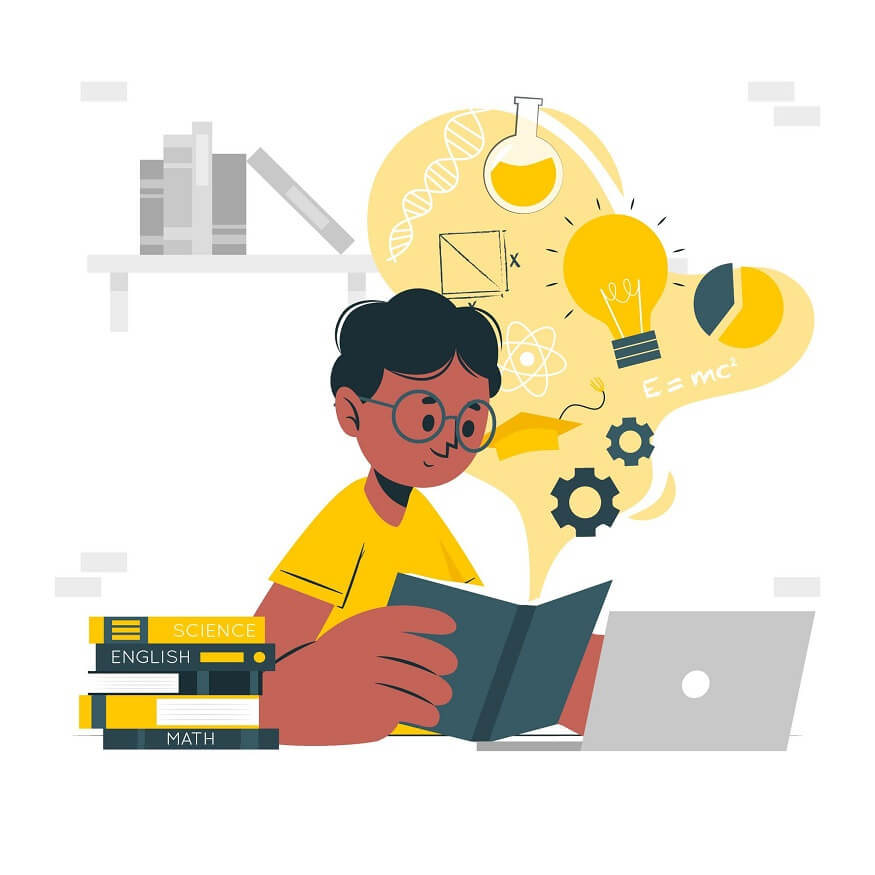Education Meaning
Gaining knowledge through structured learning experiences that cover skills acquisition including values intertwined with positive attitudes build what we refer to classically as Education. It constitutes a lifelong process starting in early childhood and follows us throughout life always transforming us into better versions from one milestone to another rejuvenated version through positive impact towards our society. Education consists not only solely of attending mandatory school grades but also of broadened imaginative possibilities rooted in informal learning experiences extending beyond any external establishment’s walls. Education thus serves the ultimate purpose of facilitating personal development, and knowledge acquisition building well-rounded individuals that thrive positively towards a sustainable community.
Importance of Education
Education goes beyond shaping intellectual benefits and conversely extends to various aspects catering to emotional stability to physical progression. Acquiring knowledge through formal and informal avenues enhances critical thinking problem-solving techniques, creativity driving an effective communication approach, smooth social interactions amongst individuals equipped with essential values and ethical behaviour required to achieve responsible citizenship. Below mentioned are some of the reasons which show the importance of education in life
- Empowerment – Education is an invaluable resource for equipping individuals with knowledge that helps foster growth in every aspect of life. Through this educational process, one can identify how individual strengths complement society’s collective progress resulting in the development of necessary skill sets including critical thinking abilities leading ultimately towards empowering decision-making processes. The acquisition of such skills allows for a deeper understanding & engagement within our interconnected global community while empowering each individual towards fulfilling his or her respective life pursuits.
- Personal Development – Personal growth is an important aspect that is nurtured through education. Education affords the opportunity for individuals to discover new beginnings through the exploration of personal interests while illuminating potential abilities that may have gone undiscovered without them. With enhanced skills cultivated through meaningful learning engagements, education helps with the overall strengthening of one’s capabilities. In addition to skill enhancement, confidence building which translates to improved communication skills is another benefit obtained from quality education along with the essential awareness of our authentic selves as we relate within our communities.
- Expanded Opportunities – Education meaning and importance serve as an enabler for individuals looking to venture into uncharted territories by widening their opportunities significantly. Through structured learning methodologies, it equips students with the necessary skills they need while exposing them to diverse careers that could pique their interest leading them towards purposeful employment choices. Further on it propels professional growth by enabling higher earnings potential while ensuring stable job roles with better chances for upward mobility resulting from sound educational accomplishments. Notably, it also fuels agility; making individuals versatile enough to manoeuvre through dynamic work environments brought about due changes within industries or organisational structures alike.
- Enhanced Critical Thinking – Critical thinking abilities play a central role in refining individuals’ minds through education by enabling them to analyse evidence meticulously as well as form reasoned conclusions founded on lucid arguments rather than biases or assumptions alone. Alongside empowering analytical faculties with such commendable attributes comes fostering creativity by encouraging curiosity about relationships among things when solving various problems independently. Something particularly relevant both personally or professionally within an ever-changing social context marked by disruptive challenges.
- Lifelong Learning – Education has the power to inspire a passion for constant learning and promote a lifelong commitment to knowledge acquisition. It equips people with relevant skills and the drive to pursue learning opportunities continually. With constant technological innovation and social changes, ongoing education becomes invaluable in adapting to new challenges.
Different Types of Education
There are various types of education for kids, each offering unique approaches to learning and catering to different needs and preferences. Here are some common types of education for kids:
- Public Schools – Public schools are government-funded entities that offer children free education services from a standardised curriculum and an array of subjects and extracurricular activities. These establishments serve a diverse student populace while ensuring equality in the provision of educational opportunities always takes priority.
- Private Schools – Private school education is supported by non-public funds and often delivers customised academic programming suited for various student needs. Educational approaches can vary greatly between different private institutions with distinct curricula available such as Montessori or Waldorf-based learning environments. Private schooling’s smaller class sizes also allow for more personalised attention enabling each student the opportunity for exceptional academic achievement suitable for their specific skill set.
- Charter Schools – Charter schools are publicly funded, non-governmental establishments operating independently. They are characterised by increased autonomy in designing their course of study and utilising diverse teaching approaches. Moreover, these institutions usually have a particular emphasis or theme like technology, arts or science and may also integrate pioneering educational techniques.
- Home-schooling – Homeschooling is an educational model where parents/ guardians bear responsibility for teaching their child at home rather than in traditional classroom settings. What sets this method apart is its capacity for offering more personalization options when selecting coursework as well as pace control. Depending on preference, students can participate in independent study or opt into online curriculums/learning communities designed around homeschoolers’ needs.
- Online Learning – Virtual or e-learning, also called online learning, utilises digital resources and platforms for instructional purposes. It can complement traditional classroom teaching or serve as an independent online school. By permitting remote access to educational materials and teachers, this mode of education embraces flexibility in scheduling and location.
It is important to know that there are diverse modes of learning available, which may overlap or be used simultaneously. As such, families have the option to combine multiple approaches tailored to their unique desires and their children’s specialised necessities.
Conclusion
At Euroschool, we understand the importance of education in life including personal growth which has a direct influence on professional attainment inclusive of managed passion, and pursuit of career planning. It also helps in promoting equality with social mobility serving as the ultimate tool in breaking poverty cycles and building better lives contributing positively towards societal advances in different aspects such as sustainability. Education’s meaning and importance have proven time and again to be an empowering force within human societies worldwide by introducing individuals to valuable information and building the skill sets required for success.
Furthermore, it anchors moral teachings that facilitate equity in every aspect while emboldening citizens with the means necessary not only to navigate through life themselves but also to serve purposefully in their respective societies. So it is indisputable that universal accessibility of educational institutions should be considered fundamental equivalence in both practicalities of personal pursuits as well as a contribution towards communal welfare at large.











